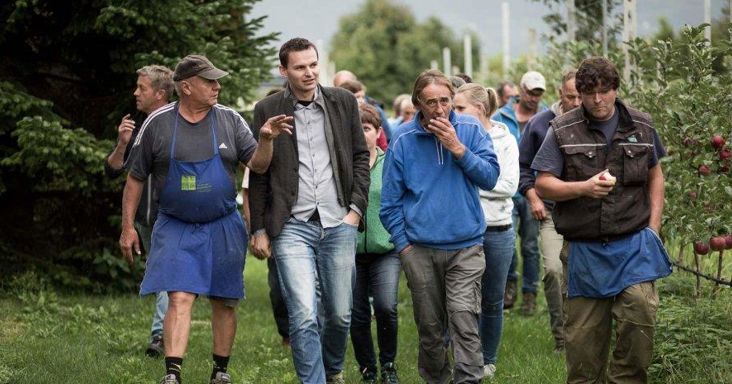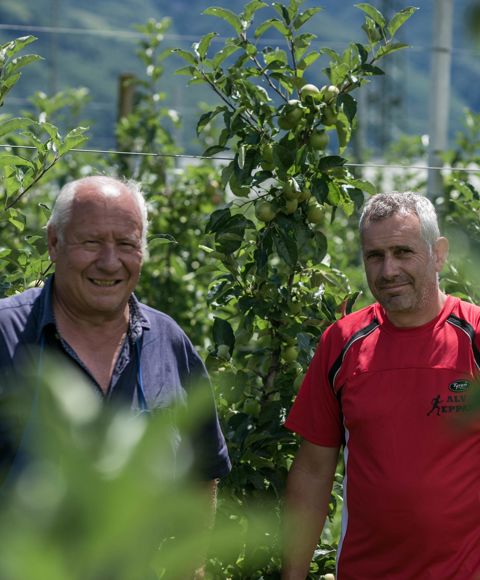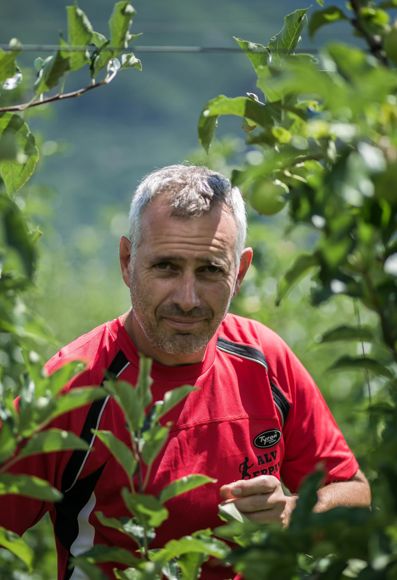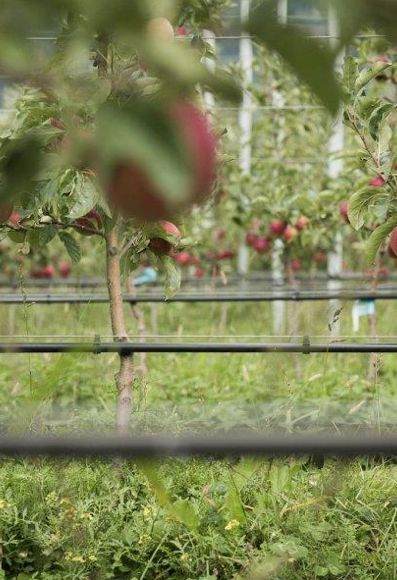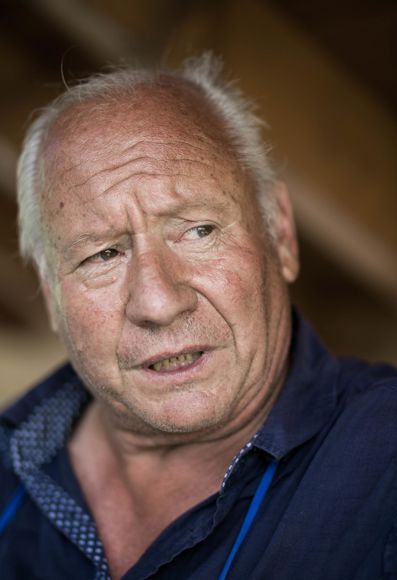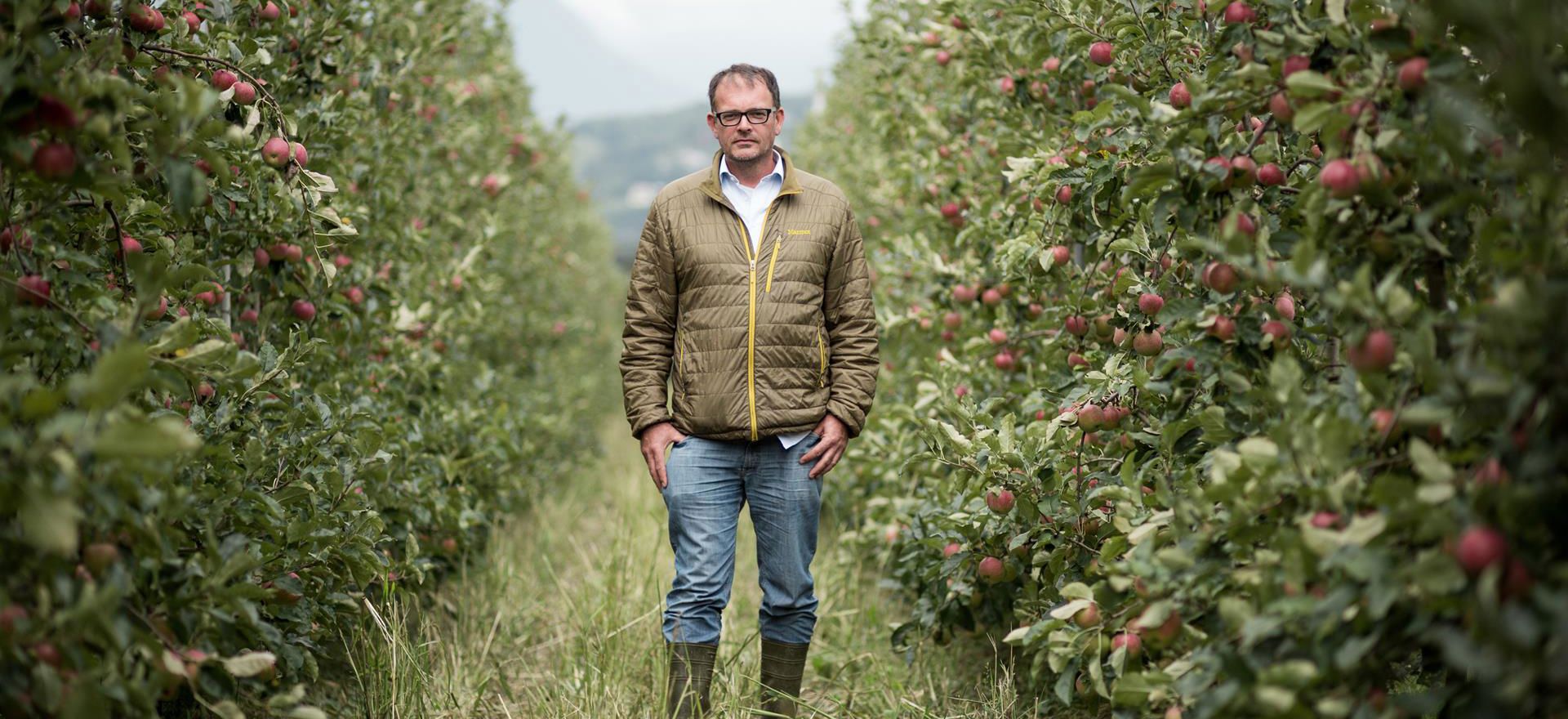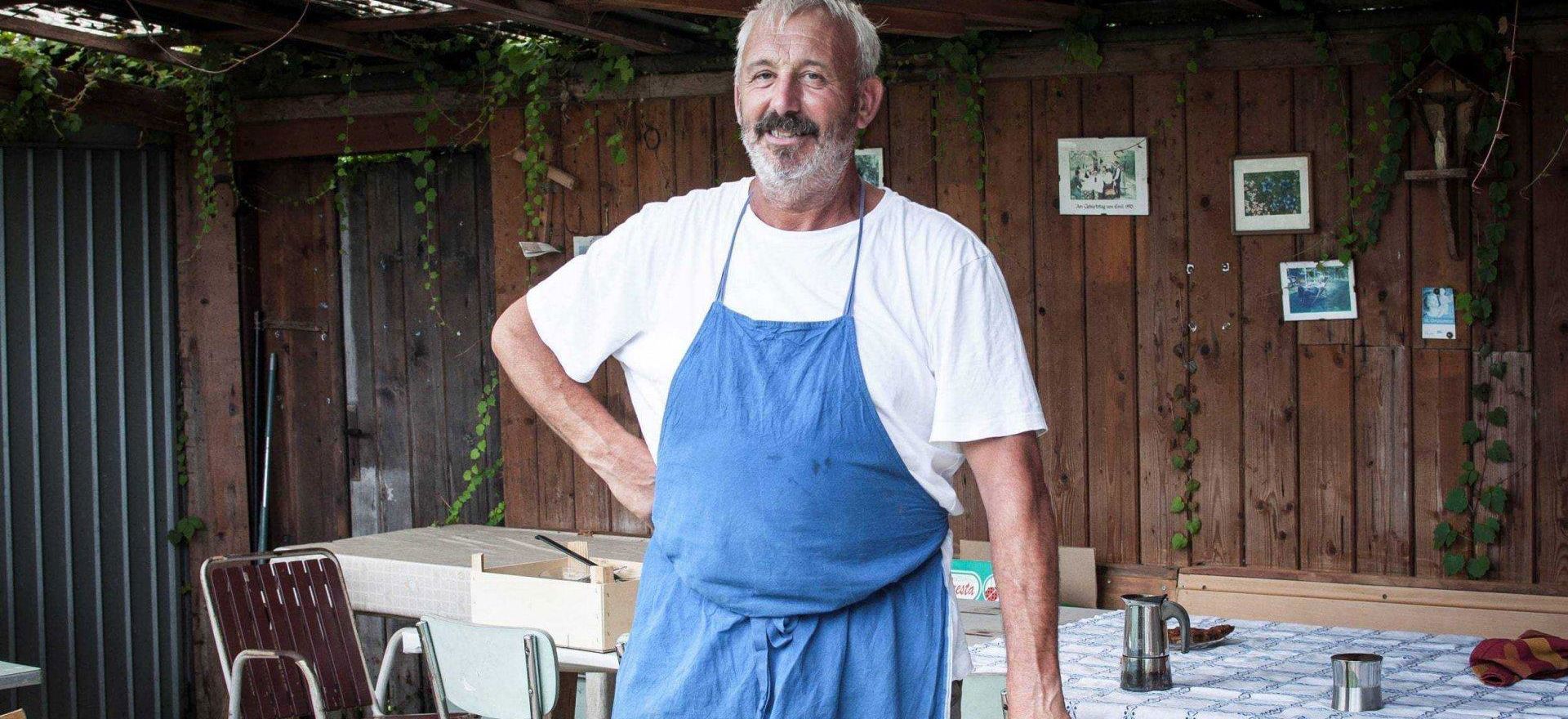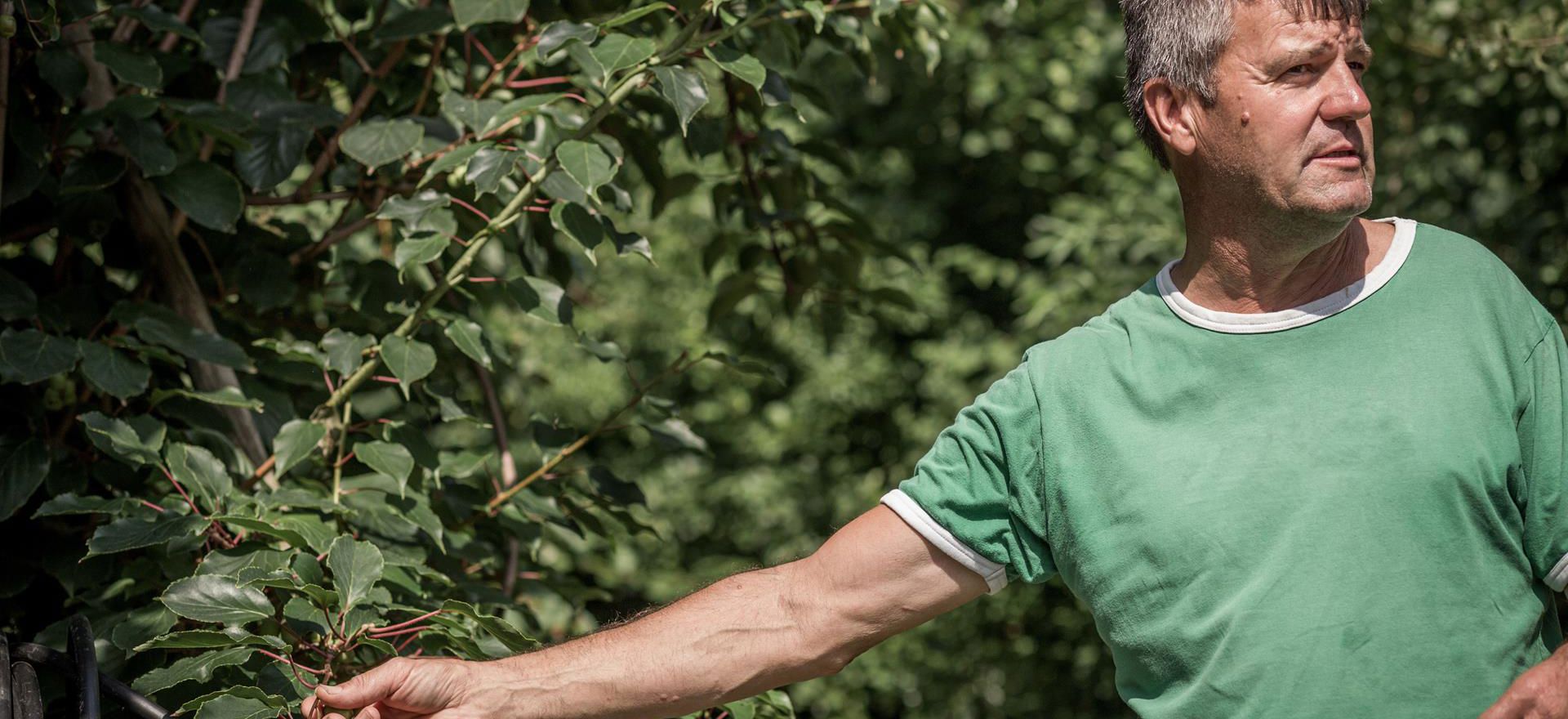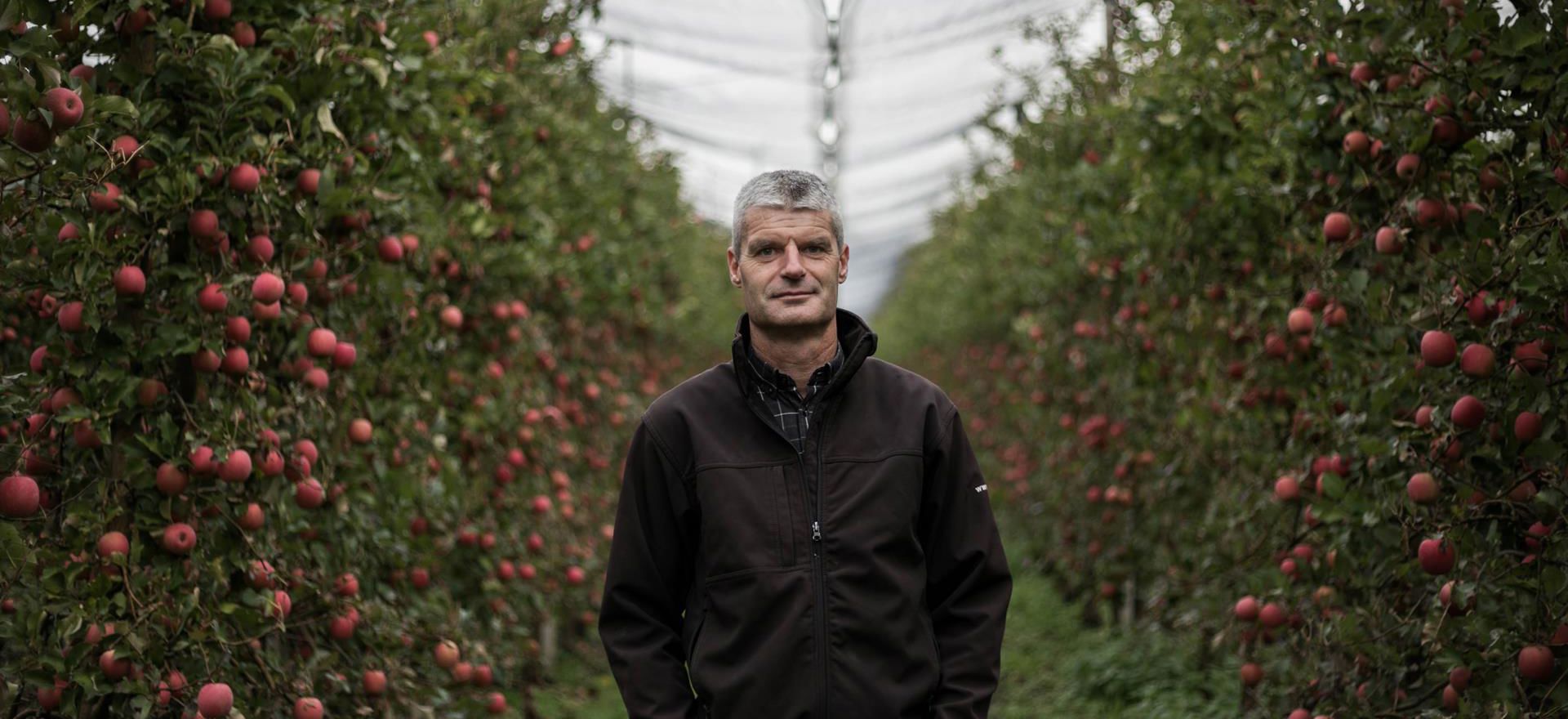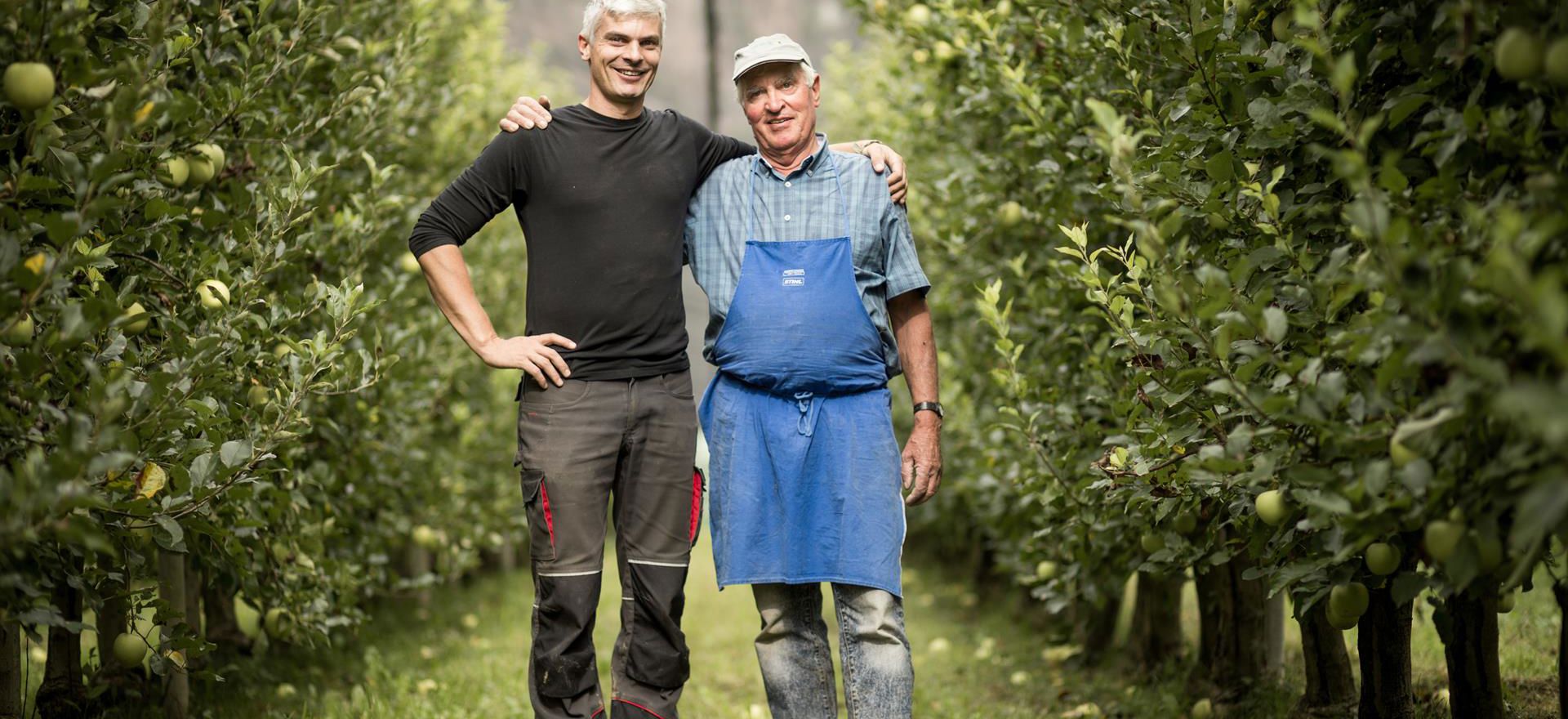150 years ago, a chapel stood on the banks of the Eisack river in Bozen, next to the modern-day Loreto bridge.
When the Eisack broke its banks at that spot, it washed the bridge and the chapel away. 60 years later buried in the mud, an undamaged wooden statue of Mary from the Loreto chapel was found to the south of the town. Miraculously, it had survived the years in its muddy tomb undamaged. So goes the legend that gives this area its name: Engelmoos, which means angel’s marsh. This is where the Alessandrini family lives on their farm.
Helmuth’s grandfather was a winemaker and a defining figure in the family history. He married his wife for love – not always a primary factor back then, and he inherited a farm with some small plots of land. But Helmuth’s grandfather insisted the farm should not be turned over to him. Instead, he sought his fortune as a cattle trader. When buying cows and calves in Austria, he couldn’t pay the farmers straightaway. So, he promised to return in a few months and repay them properly. He rented a stable for the animals and sold them on at markets for a profit. No sooner said than done: he went back to Austria and paid the farmers, just as agreed. A true story of trust and honesty.
A trustworthy cattle trader, who expanded the farm, step-by-step. He used the profit to buy land south of Bozen and planted pears – the channels of the Etsch river make the flinty ground here perfect for fruit growing. Soon Kaiser Alexander and Williams pears were flourishing and being harvested in cushioned baskets.
Under Helmuth’s father’s management, the pears gradually gave way to apples. And a small revolution gave the yields a boost: motorised machines were introduced on the farm. Even while he was still at school, Helmuth got stuck in with youthful energy and quickly became a passionate tractor driver. After two years of college studies in Laimburg learning about fruit and wine growing, he joined the farm. With fresh ideas, bold visions and new building plans.
Helmuth’s grandfather was a winemaker and a defining figure in the family history. He married his wife for love – not always a primary factor back then, and he inherited a farm with some small plots of land. But Helmuth’s grandfather insisted the farm should not be turned over to him. Instead, he sought his fortune as a cattle trader. When buying cows and calves in Austria, he couldn’t pay the farmers straightaway. So, he promised to return in a few months and repay them properly. He rented a stable for the animals and sold them on at markets for a profit. No sooner said than done: he went back to Austria and paid the farmers, just as agreed. A true story of trust and honesty.
A trustworthy cattle trader, who expanded the farm, step-by-step. He used the profit to buy land south of Bozen and planted pears – the channels of the Etsch river make the flinty ground here perfect for fruit growing. Soon Kaiser Alexander and Williams pears were flourishing and being harvested in cushioned baskets.
Under Helmuth’s father’s management, the pears gradually gave way to apples. And a small revolution gave the yields a boost: motorised machines were introduced on the farm. Even while he was still at school, Helmuth got stuck in with youthful energy and quickly became a passionate tractor driver. After two years of college studies in Laimburg learning about fruit and wine growing, he joined the farm. With fresh ideas, bold visions and new building plans.



